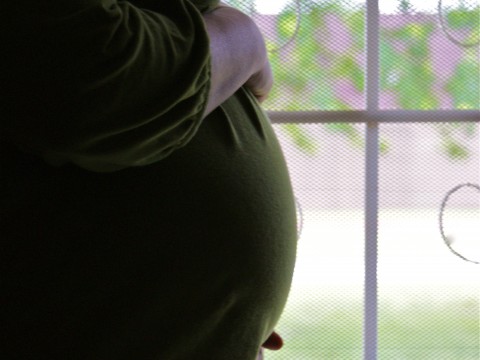Placenta Previa Blocks the Cervix
Placenta previa occurs only in a pregnant woman when there’s a problem with the placenta. The placenta is a flat, round organ that is formed during pregnancy. Its function is to transfer food and oxygen from the mother to the growing baby. The placenta normally forms soon after conception, high up on the inside wall of the uterus. In rare cases, the placenta will form lower in the uterus and may cover all or part of the cervix. When the cervix is blocked by the placenta, then it is called placenta previa.

The Causes of Placenta Previa
The causes of placenta previa remain unknown, but there are some things that a woman can do to lower her risk. Smoking and using cocaine during pregnancy are known to increase a woman’s risk of getting placenta previa. Other factors, such as past uterine surgery, being 35 or older, past C-sections and having a past history of having placenta previa can also increase a woman’s risk.
Interestingly enough, if your doctor discovers that you have placenta previa prior to your 20th week of pregnancy, then you have a 9 out of 10 chance of it clearing up on its own.
Placenta Previa Sometimes has No Symptoms
Many women with placenta previa don’t know it because of the total lack of symptoms. Other women may have sudden and painless bleeding, or it may feel like they’re going into labor with contractions and an aching lower back.
Most cases of placenta previa are diagnosed during the second trimester when the woman has her first routine ultrasound. It may be diagnosed earlier if a woman finds that she’s bleeding and the doctor orders an ultrasound to see what is going on.
If Diagnosed with Placenta Previa
If you are diagnosed with placenta previa, you will be treated according to its severity. Women who experience vaginal bleeding due to placenta previa may have to stay in the hospital until the baby can be delivered via cesarean section. If there is no bleeding accompanying the placenta previa, then your doctor will let you stay at home but you should avoid having intercourse or vaginal exams.